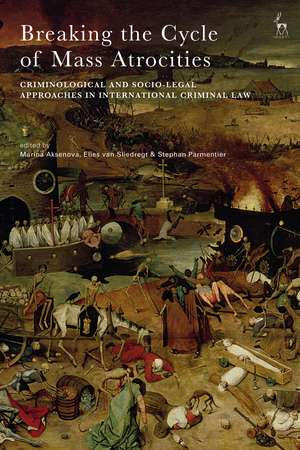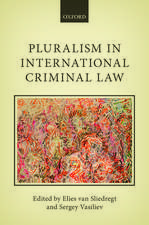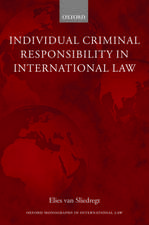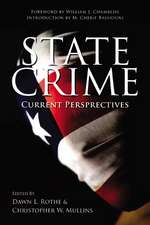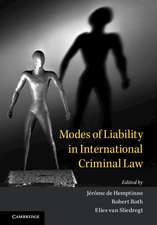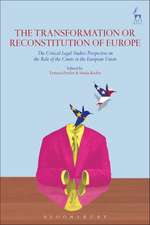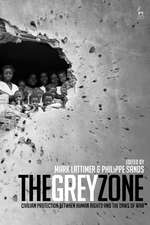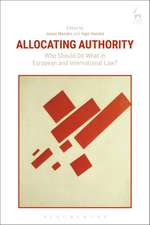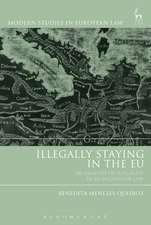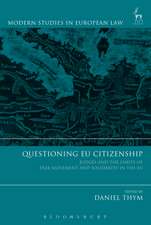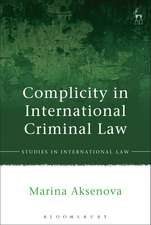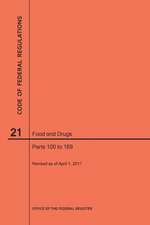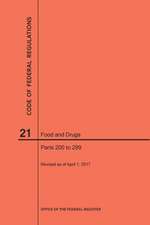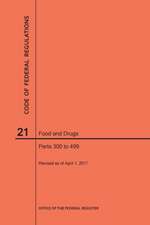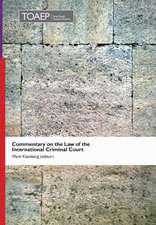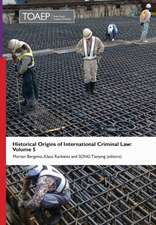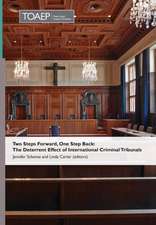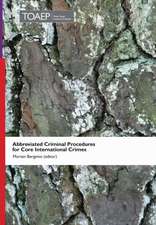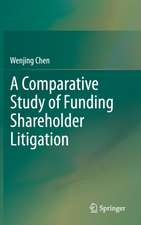Breaking the Cycle of Mass Atrocities: Criminological and Socio-Legal Approaches in International Criminal Law
Editat de Marina Aksenova, Elies van Sliedregt, Stephan Parmentieren Limba Engleză Hardback – mai 2019
| Toate formatele și edițiile | Preț | Express |
|---|---|---|
| Paperback (1) | 238.58 lei 6-8 săpt. | |
| Bloomsbury Publishing – 16 dec 2020 | 238.58 lei 6-8 săpt. | |
| Hardback (1) | 225.50 lei 3-5 săpt. | +23.17 lei 4-10 zile |
| Bloomsbury Publishing – mai 2019 | 225.50 lei 3-5 săpt. | +23.17 lei 4-10 zile |
Preț: 225.50 lei
Nou
Puncte Express: 338
Preț estimativ în valută:
43.16€ • 46.90$ • 36.28£
43.16€ • 46.90$ • 36.28£
Carte disponibilă
Livrare economică 31 martie-14 aprilie
Livrare express 14-20 martie pentru 33.16 lei
Preluare comenzi: 021 569.72.76
Specificații
ISBN-13: 9781509919444
ISBN-10: 1509919449
Pagini: 288
Dimensiuni: 156 x 234 x 19 mm
Greutate: 0.41 kg
Editura: Bloomsbury Publishing
Colecția Hart Publishing
Locul publicării:London, United Kingdom
ISBN-10: 1509919449
Pagini: 288
Dimensiuni: 156 x 234 x 19 mm
Greutate: 0.41 kg
Editura: Bloomsbury Publishing
Colecția Hart Publishing
Locul publicării:London, United Kingdom
Caracteristici
Draws on both international criminal law and criminology to explore how best to avoid mass atrocities.
Notă biografică
Marina Aksenova is Professor of Comparative and International Criminal Law at IE University in Madrid.Elies van Sliedregt is Professor of International and Comparative Criminal Law at Leeds University.Stephan Parmentier is Professor of Criminal Law and Criminology at KU Leuven.
Cuprins
PART ICYCLE OF MASS ATROCITIES1. Introduction: Breaking the Cycle of Mass Atrocities: Criminological and Socio-Legal Approaches to International Criminal Law Marina Aksenova2. The Biology and Psychology of Atrocity and the Erasure of Memory Christopher Harding PART IICRIMINALISATION3. International Criminalisation as a Pragmatic Institutional Process: The Cases of Dominic Ongwen at the International Criminal Court and Thomas Kwoyelo at the International Crimes Division in the Situationin Uganda Matilde Gawronski4. Solidarity as a Moral and Legal Basis for Crimes Against Humanity: A Durkheimian Perspective Marina Aksenova PART IIITRIAL AND PUNISHMENT5. The Hybrid System of International Criminal Law: A Work in Progress or Just a Noble Experiment? Colleen Rohan6. Agents and Agency in International Criminal Law: Intent and the 'Special Part' of International Criminal Law Kerstin Bree Carlson7. Punishment in Transition: Empirical Comparison of Post-Genocide Sentencing Practices in Rwandan Domestic Courts and at the ICTR Barbora Holá and Amani Chibashimba PART IVRE-ENTRY OF VICTIMS AND PERPETRATORS8. Not in Our Name! Visions of Community in International Criminal Justice Milena Tripkovic9. Explaining (Away) Individual Agency: A Criminological Take on Direct Perpetrator Re-Presentations at the ICTY Anette Bringedal Houge PART VPREVENTION10. Social Identity and International Crimes: Legitimate and Problematic Aspects of the 'Ordinary People' Hypothesis Stefan Harrendorf11. Regional Criminal Justice, Corporate Criminal Liability and the Need for Non-Doctrinal Research Elies van SliedregtEPILOGUE12. Breaking the Cycle of Collective Violence: International Criminal Law's Contribution Harmen van der Wilt
Recenzii
Breaking the Cycle of Mass Atrocities is a welcome addition to the literature, and should be of interest to scholars and students interested in socio-legal approaches to international criminal law.
